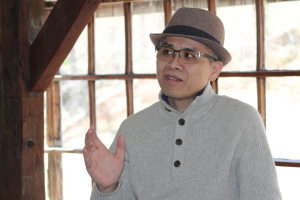Pastors Debate 'Should Denominations Go Away?'
CHARLOTTE, N.C. – Seven influential megachurch pastors took part in live unscripted discussions on different approaches to ministry in the second round of The Elephant Room – an event billed as "conversations you never thought you'd hear" from pastors.
Held in Aurora, Ill., and broadcast to over 70 locations around the U.S., the discussions were mediated by James MacDonald of Chicago's Harvest Bible Chapel and Mark Driscoll of Seattle's Mars Hill Church.
With nondenominational churches growing across the county, the role of denominations and church networks was the first topic discussed.
Jack Graham, a pastor affiliated with The Southern Baptist Convention, told audiences that there is "no question denominations are diminishing in their impact, [and] frankly, a lot should go away. Especially those whose theology and commitment to world missions is basically nonexistent."
Most people in today's culture aren't looking for a church affiliated with a denomination, he said. Rather they are looking for "a 'Jesus Church' and a church preaching truth and grace."
Graham doesn't necessarily see affiliation with a denomination as a bad thing, especially ones like the SBC that have a long history of conservative theology and are giving millions of dollars to "fulfill the Great Commission."
Denominations, he noted, can avoid becoming institutional and bureaucratic by maintaining the focus on local churches. "You keep [the church] fluid by keeping it a local church movement," he said.
Mark Driscoll provided the counterpoint to Graham in the first round. Driscoll said often what happens in denominations is that "there is movement, then there is an organization to support the movement and then it becomes an institution where the primary focus is to preserve the institution, not to forward the movement, [and finally] it becomes a museum."
He said churches have to keep going back to mission and movement in order to avoid this problem.
Driscoll is affiliated with the Acts 29 network – an organization that is dedicated to church planting and highly focused on mission and movement.
"I'm not a Baptist, but I love the Baptists. The Baptists love me," he said. Driscoll told those in the audience that the Acts 29 network works with various denominations and he is seeing many young church leaders opting for dual affiliations, with both their denominations and with Acts 29.
A dual affiliation allows them to have the assets and benefits from both denominations and networks. Driscoll said that denominations help to provide resources that a network wouldn't have, like funding and helping to start schools.
"I think we're going to start seeing more people with dual affiliations," he said. They help each other fill in the gaps of their ministries.
The Mars Hill Church pastor added that he liked being a part of a network because he is able to "work with people outside of our team and tribe ... and have friendships without the politics or criticism that comes from without your tribe."
Both Driscoll and Graham agreed that dual affiliations help those in different denominations cooperate and work with other evangelicals of different backgrounds. "There is a strengthening of the stakes theologically and a broadening of the tent," Graham said.
Some churches prefer to say they are a denomination first and a network second, or vice versa, but Driscoll noted, "At the end of the day as long as churches are getting planted and people are meeting Jesus, that's all we care about."




























